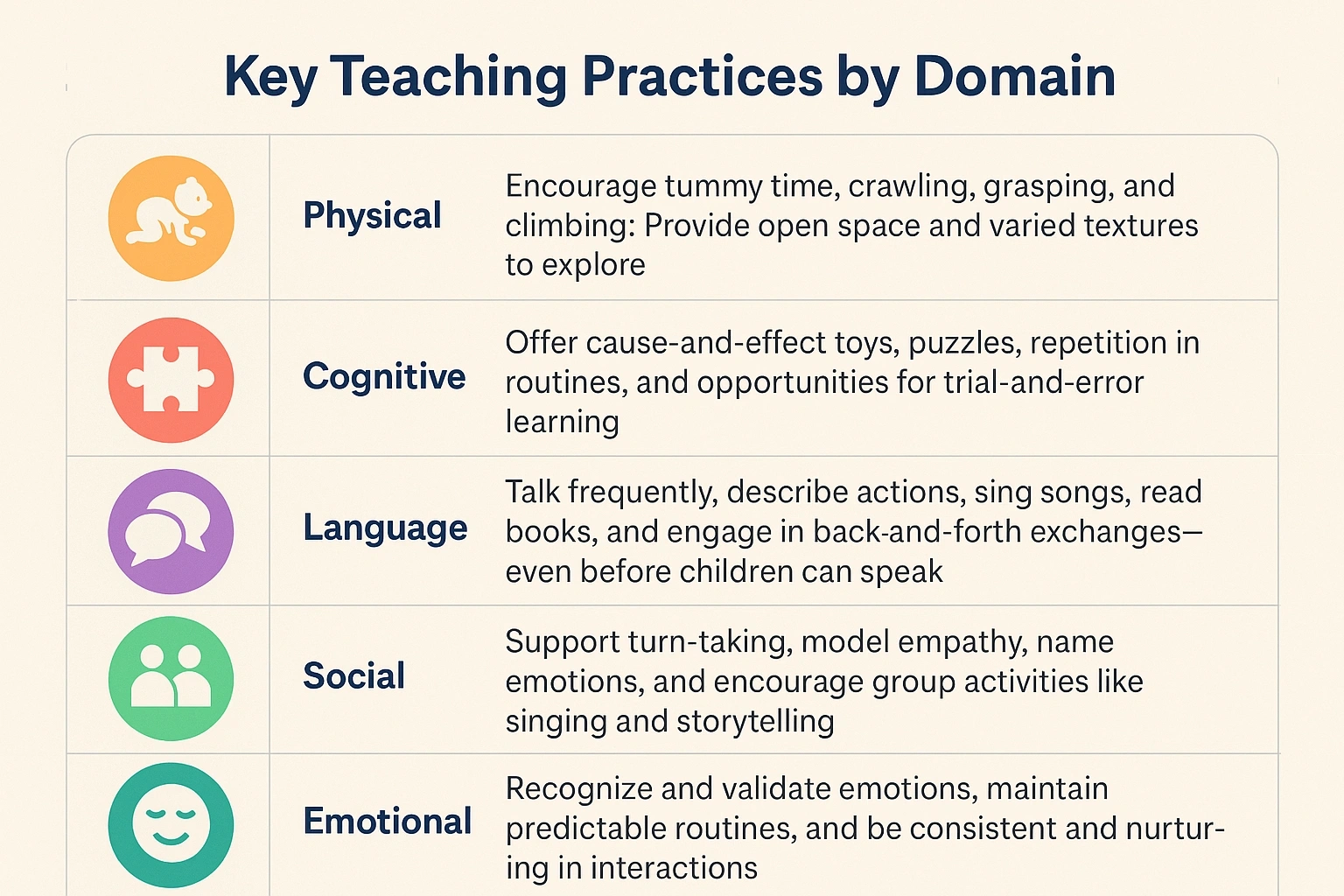Teaching Infant and Toddler Education
Education for infants and toddlers centers on relationship-based, play-based, and culturally responsive pedagogy. Young children learn through secure attachments, active exploration, and meaningful interactions with their environment and caregivers. Educators co-construct knowledge using responsive, intentional strategies (Team, 2023).
Key Pedagogical Approaches:

Relationship-Based Pedagogy
Teaching strategies include modeling, scaffolding, and reciprocal communication. These can involve narrating daily routines, imitating infant sounds, or asking toddlers open-ended questions to build language and cognitive skills.

Play-Based Learning
Play is central to learning in infancy and toddlerhood. Through social, exploratory, and sensory play, children develop foundational problem-solving, communication, and identity-building skills. Educators support this by following children’s interests, providing open-ended materials, and co-playing to extend learning (Queensland Government, 2023).

Responsive and Reciprocal interaction
Responsive caregiving involves recognizing and responding to children's cues, which supports emotional and brain development. Through eye contact, touch, imitation, and shared attention, educators build communication skills and strong bonds. When interactions become reciprocal, both child and educator deepen their connection through meaningful engagement (Team, 2023).

Building Relationship with families
Strong relationships with families help children feel secure and supported. Educators gain valuable insight into each child’s background, interests, and needs. This leads to more meaningful and culturally responsive teaching (Team, 2023).
Teaching Pratices by Domain
